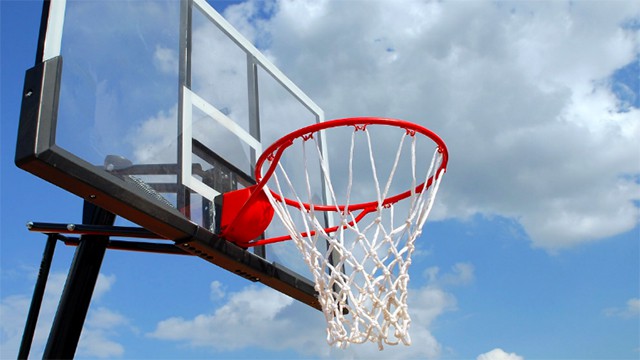Are Kids in Brampton Getting Enough Physical Activity?
Published June 21, 2018 at 10:09 pm

Tracking your child’s report card is super important.
Your kids might get straight-A’s in school, but what’s their physical activity score?
Tracking your child’s report card is super important.
Your kids might get straight-A’s in school, but what’s their physical activity score?
It turns out kids across Canada scored a D+ for overall physical activity.
ParticipACTION released their 2018 Report Card on Physical Activity for Children and Youth and Canadian kids haven’t fared too great.
This is particularly alarming as this year’s report has taken into account the connection between physical activity and brain health.
A meagre 35 per cent of five to 17-year-olds and 62 per cent of three to four-year-olds are getting the recommended physical activity for their age group.
And, this may be impacting their brain health too, which would make them less attentive, moody, and causing them to not meet their full potential at school or in the playground.
“For decades we’ve talked about how physical activity improves heart health, helps maintain healthy body weights, and builds strong bones and muscles in kids,” said Dr. Mark Tremblay, Chief Scientific Officer, ParticipACTION Report Card and Director of the Children’s Hospital of Eastern Ontario Research Institute’s Healthy Active Living and Obesity Research Group (CHEO-HALO).
“This year we wanted to dig deeper into what it does for their most complex organ – their brain. From increased cognitive skills to improved mental health, physical activity has profound impacts on kids’ brain health. Yet, we now know that many Canadian children and youth are missing out on these benefits because of a lack of physical activity. So, for their brains’ sake, it’s time to get kids sitting less and moving more.”
The 2018 report card was released with an evidence-informed expert Statement on Physical Activity and Brain Health in Children and Youth. The expert statement was developed with the help of a team, including pediatric neuroscientists, exercise scientists, clinical and practitioners.
It finds children and youth need to be physically active on a regular basis for better brain health including cognition, brain function and mental health.
“Regular physical activity, even in short bursts, can help kids’ brains on many levels,” said Tremblay. “Kids who are more active have increased self-esteem and are generally more focused and less stressed compared to their less active peers. For example, students who exercise before a test show stronger brain function than those who don’t.”
Furthermore, he said, it’s possible for kids with brain-based disabilities, such as autism spectrum disorder or ADHD, to experience better improvements in learning and thinking as a result of regular physical activity.
The lowest grades, apart from physical activity are for sedentary behaviours (D) and for 24-hour movement behaviours (F).
Everyone knows that being a couch potato is unhealthy. Especially for growing kids, whose health benefits from turning away from screens, getting off the couch and breaking a sweat. And, as this report highlights, brain health is a pressing reason for kids to get more active.
“In order to help support the development of strong, healthy brains we need to encourage kids to get enough daily heart-pumping physical activity,” said Elio Antunes, President and CEO, ParticipACTION.
“Research shows that active kids perform better in school and are generally happier. We need to be active role models and set kids up to succeed. I understand that modern life can get in the way of making the time to get active, but I encourage all families to try. And, get outdoors more because it is a powerful antidote for kids facing stress.”
Other grades assigned in the Report Card include:
- “D” for Active Play & Leisure Activities
- “D-” for Active Transportation
- “B” for Organized Sport Participation
- “C-” for Physical Education
- “B+” for Sleep
- “D+” for Physical Literacy
- “D” for Physical Fitness
- “C+” for Family & Peers
- “B-” for School
- “B+” for Community & Environment
- “C+” for Government
For tips and more information on physical activity for kids and what you can do to improve your kids’ brain health, you can download the full report.
insauga's Editorial Standards and Policies advertising





